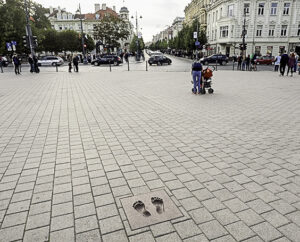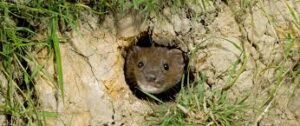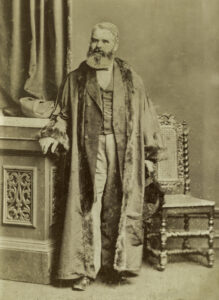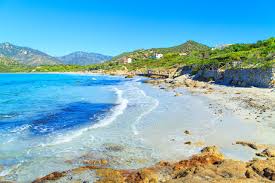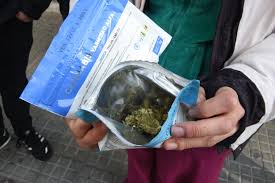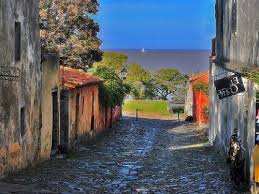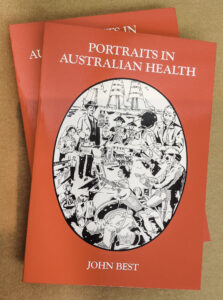I have always been a great admirer of Winton Turnbull, who was Country Party member for first the Federal seat of Wimmera and then Mallee for over 26 years. Turnbull was among a number of parliamentary members such as John Carrick and Tom Uren, who spent time in Japanese Prisoner of War camps – he was in Changi.
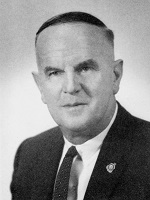
Turnbull was the member who, in his slightly stuttering voice (not bellow as elsewhere sneeringly reported), announced in Parliament that he was a “count-ry member” at which the quicksilver Gough Whitlam interjected “I remember.”
He was also the butt of an Eddie Ward interjection. Turnbull was holding up a bunch of skeleton weed, when Eddie inquired which was the weed. It is a pity that there was nobody quick enough on the Labor side to emulate Mr Ward when Morrison came into the House that day brandishing a lump of coal.
Turnbull was such an assiduous local member, that he was known as the member for “currants and raisins” such was his advocacy of the dried fruits industry. He was well respected despite being the butt of some memorable interjections.
However, what distinguished the member was that he never took a perk, never took an overseas junket. He never missed a sitting of Parliament and thought his time was better spent traversing his huge electorate looking after his constituents rather than cavorting at The Ritz or the George V. He was a person of the utmost probity; a pity that his legacy has been supplanted by the National Party pork barrel.
Bridget McKenzie
And now by contrast is Senator the Honourable Bridget McKenzie, characterised somewhat briefly early this week in her entry in Wikipedia as Minister for Pork Barrelling.
So much has been written about her that even if she survives, as Minister without Portfolio, her parliamentary life will not be a happy one. As the current Minister for Agriculture, the pressure from the farmers will grow for the Government to develop an objective policy both for the short and medium term as climate change alters the viability of various primary industries. The whole dairy industry with the advent of climate change appears to be one such industry. Cotton and almond growing are others because of their voracious appetite for water. And these are just three of the problems that are afflicting primary industry, especially as climate change has underpinned the ongoing drought and integrity of the Murray-Darling Basin.
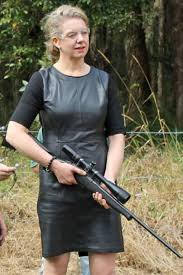
However, if she substitutes the pork-barrel for policy, this Annie Oakley from Alexandra will reinforce the fact that she looks at home with a double-barrelled musket – and not much else.
Yet Agriculture is the portfolio of McKenzie, the ridiculed former sports minister, where every day there is another nose discovered in this particular trough. Obviously she did not do this on her own as some vicarious quirk. The more the Minister is defended the more vocal is the disgust and the more one realises how many other Ministers have been to the trough.
However why do we, the cynical populace, single out this particular rort? It is just de rigeur for the way this country has been governed since rum was the currency.
Probably the brazenness and the particular arrogance of the central player, especially at a time when so many people are doing it hard – and the media images are of her laughing – as if she is mocking the Australian community.
The National Party is essentially a Queensland and northern New South Wales party. It hangs on in Victoria at the extremes of the State, but Victoria is centred very much around Melbourne and regional centres and eventually the National party seats seats will be distributed out, and with that the entitlement to be on the Coalition ticket.
However, even before that happens there will pressure from Queensland, and obviously if he has got the numbers to be the new Deputy Prime Minister, Littleproud will challenge the hapless McCormack. And if Littleproud wins, then McKenzie can retire to a lucrative “consultant position” in the footsteps of Pyne, Bishop et al. The pension would be greater if she retires as a Minister not as a backbencher, where her final salary will be halved if that was her final position. Watch this space!
Julia Creek, Colonia and Me
I read where this cattle station family from Julia Creek had just relocated to running a B&B outside Colonia in Uruguay. That was quite a shift I thought, but having been to both places, I thought that this family migration could anchor a yarn about my time in both places.
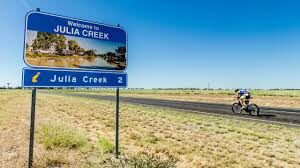
I remember when I was working at Mount Isa I used to go out to Julia Creek which was a respectably sized speck on the map east of Cloncurry, but part of the territory that I was working in at the time. I went to meet the local doctor, and there they were, direct from central casting for a “Country Practice” not the tripe, which roams around TV currently under the name “Doctor Doctor.”
The then local doctor was a tall young English doctor, whose military bearing and quiet reserved manner was what the community perceives as the good doctor, which he was. The director of nursing was Scottish born and she was vivacious, unconventionally good looking and highly competent as well as being popular with staff and patient. When I met them at the hospital, my instinctive reaction was that both being from the United Kingdom, they were “an item”.
How wrong could I be, and fortunately I did not put my foot in it, but I was subsequently introduced to the doctor’s wife. Attractive, vivacious, she was running the public relations for the world women’s tennis from Julia Creek. When she needed to go somewhere, she would exchange her check shirt and jeans for a tailored suit and taking her laptop, fly from Julia Creek to Brisbane via Townsville and then onwards wherever she had to go in the World. They were meat for a TV series, but what soap opera writers would have thought the scenario credible at that time.
However, like all magical situations it eventually ended and that bugbear of lack of succession planning intervened, and Julia Creek went back in its health services to square one.
The problem is that no small country town where the economic justification from a reasonable Medicare reimbursement point of view is a population of 1,000 per doctor, and the community expecting 24/7 year in and year out service without burnout, is wishful thinking.
That was over 20 years ago and as I wrote then about Julia Creek: “flat savannah country: pubs, railway station, hospital, this is travelling the outback, along the song lines of the bush troubadours past the turnoff to McKinlay where the pub scene for the first Crocodile Dundee film was shot.” Nothing much has changed, except for those flooding rains and intervening drought.
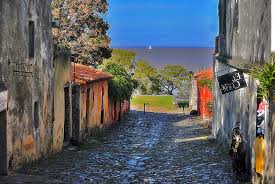
However, turning to Colonia, where the Julia Creek couple with their family have recently migrated. Colonia is a town in Uruguay. Uruguay is a place I consider in three parts in regard to population. The population is about 3 million, a third who live in Montevideo and a third of the Montevideo live in condominia alongside, if not overlooking the River Plate.
Montevideo is at the same latitude as Sydney and along the River Plate towards Punta del Este there are endless sandy beaches. The river Plate resembles Port Phillip Bay in so far that due to its width Buenos Aires in Argentina is over the other side of the estuary, but not visible. At Punta del Este you can see where the River Plate empties into the Atlantic Ocean. It is like having the Gold Coast just up the road.
However if you go the other way from Montevideo you end up in Colonia. Alongside the River Plate, it is all cobblestone alleys and low-slung adobe houses, and the church dominating the square. You can almost feel that somewhere there is a Ramona listening to the mission bells. The town was contested at one time between the Portuguese and Spanish, and the influence of each can be detected in the layout and town architecture. Again the sandy beaches are not far away.
I went there last year and had a memorable grilled steak Uruguayan style for lunch at the El Viejo Barrio, which fortunately given it was winter was very cosy inside. Nevertheless, like Sydney it has a mild winter, and now that the South Coast of NSW has been devastated by fires, Uruguay is an attractive alternative spot for a summer vacation. It is cheaper than Australia, and if you as a foreigner use a credit card, you get 15 per cent off the bill. Their currency has been buffeted by the international situation, but not as much as the Argentinian and Chilean currencies have been.
I hope the Australian couple make a go of it, and finally it is tragic that I have to say this, but I am in no way benefiting financially by this recommendation. I paid my way across South America without there being any need for a barely visible acknowledgement at the foot of this blog that I received sponsorship. I thus recommend Uruguay without any thought of financial consideration for a smoke-free holiday.
Tourism
I have always thought Tourism Australia has been stuck somewhere in the mid-secondary school years where bedrooms are coated with pinups and memorabilia relevant to the school year heroes and heroines. However, how relevant is it to project those teenage images for Australia as a whole when you are encouraging visitors to Australia.
Australia had barely recovered from that ludicrous advertisement shown at the Super Bowl in 2018 of some American dill as a supposed American love child of Crocodile Dundee and then that “PhilAusophy” essay in smug meaningless.
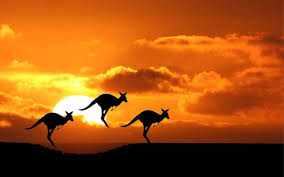
The latest opus whose release was aborted by the bushfires featured – predictably – Kylie Minogue, whose home for the past 20 years has been the UK and Adam Hills, who has lived in the UK for the past decade.
By contrast in a recently shown episode of Griff Rhys Jones’ Griff Off the Rails: Down Under, with a background of the Opera House, there was Ross Noble, the British-born comedian telling us viewers how much he loves Australia. His enthusiasm for being one of us should be tempered by the realisation that his home in St Andrews, north-east of Melbourne was burnt down in the bushfires of 2009; he had to regroup, and here he is, optimistic about Australia, ten years later, the best Ambassador Australia could have at this time. He has come back; he has more than survived
You know, it is extraordinary but here we have a raft of well-known Brits: Julia Bradbury, Jane McDonald, Griff Rhys Jones and now Michael Portillo all at it – selling Australia, mostly concentrating their efforts on Australian railways, but not solely. Their efforts have seemingly been ignored by the character, our Prime Minister, also known as Scotty from Marketing, which is somewhat surprising for someone who needs every straw he can find.
It is a little known fact that Morrison learned his marketing skills growing up alongside the Poseidon Adventure and the Towering Inferno – two of the best disaster movies ever made. He has this exquisite sense of timing of being able to advocate calling the military out in emergencies at a time when one of the military helicopters has just started a bushfire. The apologists say they are not trained for domestic emergencies, but that hardly excuses the defence forces setting fire to the ACT.
Another Bridget legacy
When she was Minister for Sport, Rural Health and Regional Communications in the Turnbull Government, she signed on the appointment of a Rural Health Commissioner, and an academic general practitioner, Paul Worley, got the job.
He was re-appointed in late October 2019 until 30 June 2020 by another National Party stalwart, Mark Coulton, the member for the NSW drought stricken electorate of Parkes, the Minister for Regional Services, Decentralisation and Local Government, hardly a ringing endorsement despite all the hype, and “rural health” has disappeared from the title.
I am not sure that just reeling out a number of rural generalist positions to be absorbed by the Queensland regionalised health system is the answer. From personal experience some rural general practitioners are first-rate teachers and they integrate teaching seamlessly into the practice. Others are not; and training is minimal. Very hit and miss.
However, the advocacy of rural generalist positions has suited the vested interests that have pursued the rural generalist model for years. Essentially, this initiative is a fancy title for training general practitioners in the country to deal with emergencies, and getting the Queensland Government to pay specialist rates for these doctors.
It is unclear whether this model has enhanced retention rates of general practitioners in rural practice. From personal experience, the program has minimal effect in Victoria, and it is unclear whether Professor Worley’s photo-opportunities that would have rivalled the travel of Bill Peach, has yielded any change in behaviour.
The other Worley report concerns allied health professionals, and while it is clear that they do not want a counterpart of the Australian College of Rural and Remote Medicine, preferring to maintain the status quo in regard to infrastructure, there is special pleading, which I have become accustomed to read. In the end it is all obtaining access to Medicare benefits, which I have argued elsewhere is on the face of their argument unconstitutional, but then who would argue against it politically. Only the central agencies have stopped entitlements under Medicare becoming a flood of pork barrels.
Having had a close association with the development of the successful rural medical school, rural clinical school and university department of rural health program – both before and after the publication of my Rural Stocktake report in 2000 – I am well aware of what does not work, but one of the problems I have encountered in public administration is a basic tenet of same.
If it does not work, don’t do it again.
In your remaining time, Professor Worley you may wish to reflect on that dictum.
A different Turnbull
I started with Winton and am ending with Malcolm.
You have had your time, Malcolm. Your recent bleat in the Time magazine makes uneasy reading. Complaining about your own failure is not a pleasant sight, anymore than reading about a quixotic Rudd tilting at the Murdoch windmill.
However, your grand entrance once into an airport lounge with your entourage gaining attention by singing snippets from Gilbert and Sullivan gave a clue to your future. Light, mildly entertaining, trivial.
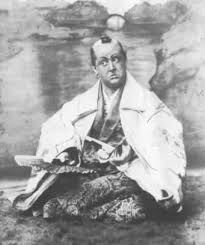
However, I suppose it’s better that “Nessun dorma” which rang out nightly when Rudd was Prime Minister.
Mouse Whisper
I shudder to think what Dutton’s advice would have been if he had been around during the poliomyelitis epidemics. Christmas Island would be very crowded I suspect. Thank God, he never read about “lock hospitals”.
My Blogmaster was a small child then. He stopped inter-school activities but still went to school – but one thing we had no ice cream. He said he was never fearful; just accepted the risk, as his parents did, heightened by living in an unsewered area, as much of outer Melbourne was at the time.
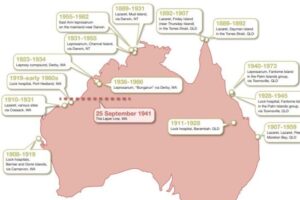

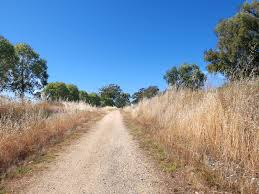
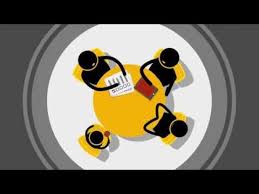




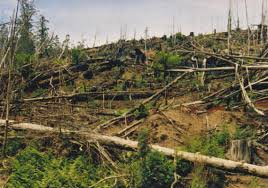

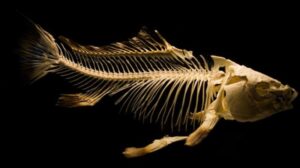




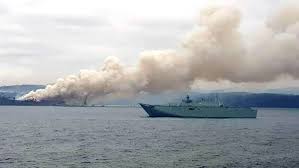
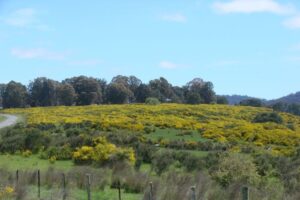
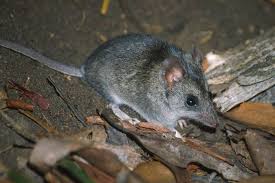


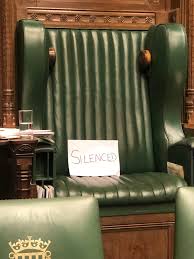

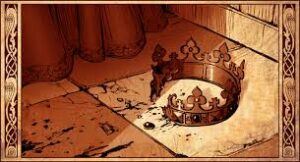


 However, as Dr Abraham had said, having repeated head on collisions at about 50 kilometre per hour cannot be good for the brain irrespective of whether you have a helmet or not (galea as the Romans would call it). Being medical practitioners, he and I are acutely aware of changes in our mental ability; that is until we have lost the ability to be aware.
However, as Dr Abraham had said, having repeated head on collisions at about 50 kilometre per hour cannot be good for the brain irrespective of whether you have a helmet or not (galea as the Romans would call it). Being medical practitioners, he and I are acutely aware of changes in our mental ability; that is until we have lost the ability to be aware.




